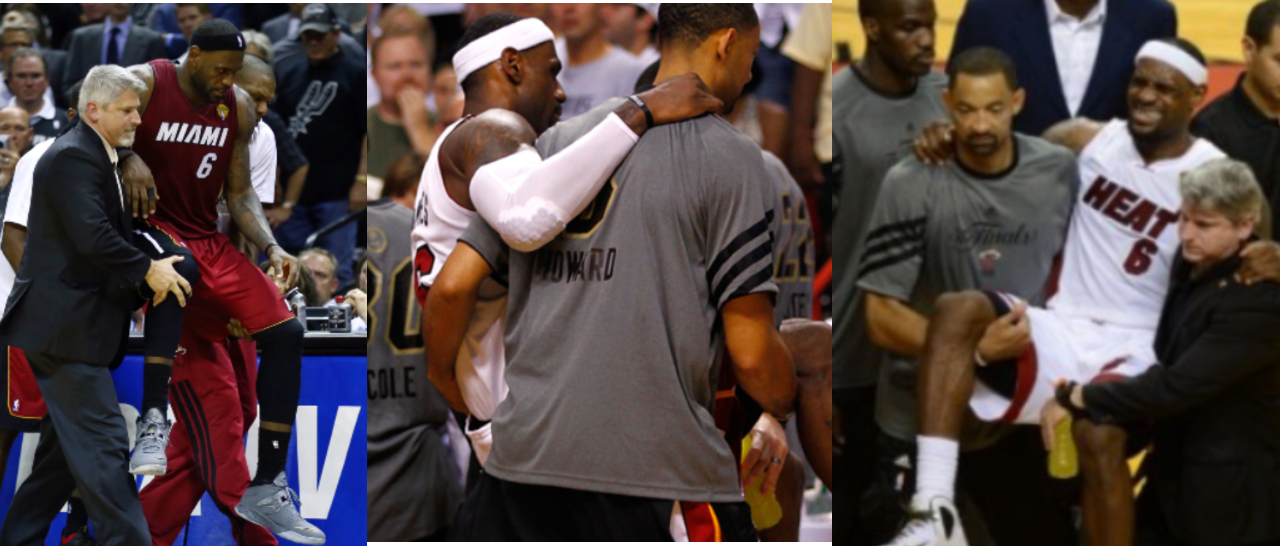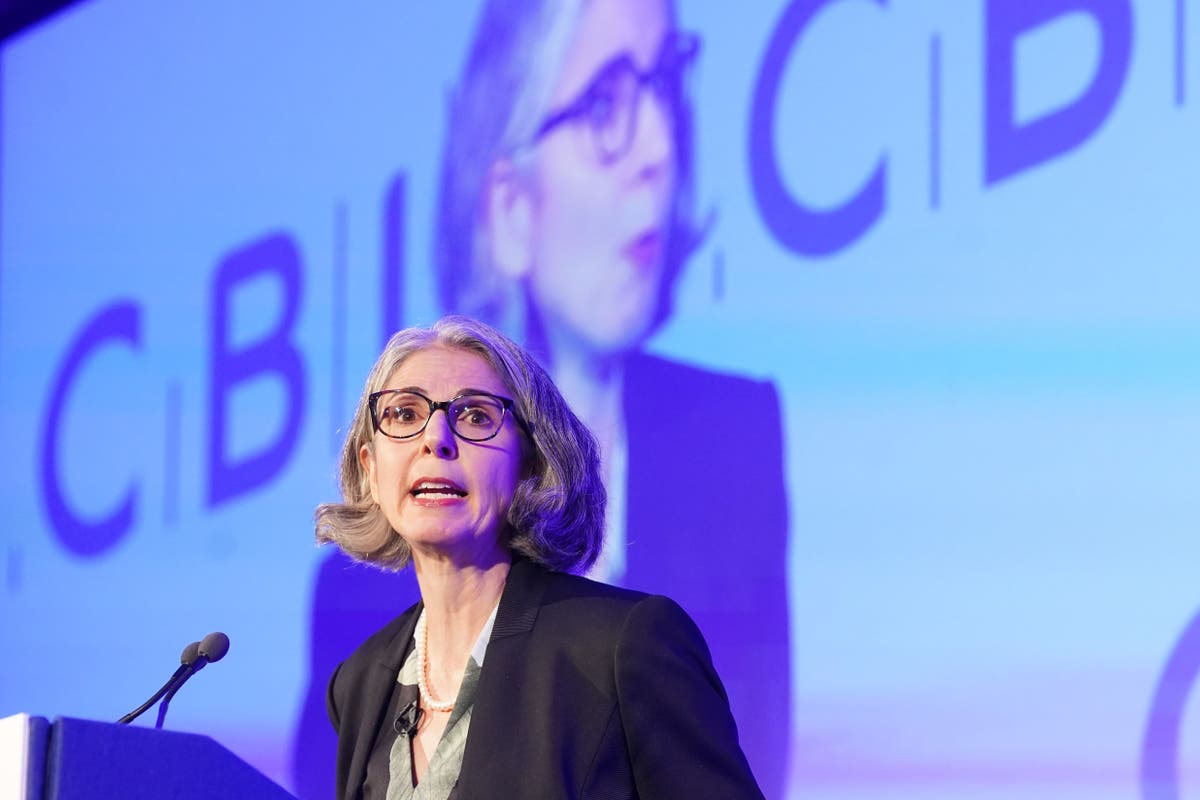Entertainment
Back in the game, no teams, and ‘sports entertainment’

Happy Wednesday friends,
I’m back from vacation, and JD and I have traded places this week. He’s somewhere in the wilds of the Carolinas doing I’m not sure what, but he did mention some risk of bears. So keep him and his family in your prayers.
We’ll be back to our regularly scheduled Tuesday and Friday newsletters next week. Though, I would hasten to add, shifting to these once-a-week Pillar Posts doesn’t mean the news has slowed down any — on the contrary. It’s just neither JD nor I can find the time to write two of them in a week, so these are basically double issues, as you’ll see.
For myself, I had a welcome week off. This was the first full week I have taken since we started The Pillar, which was a real treat. I don’t know that I could call it a “quiet” break — my family now runs to 22 children under the age of twelve, with a dozen adults. But I went, I think, at least three days without thinking about work, which was a very much needed mental reset.
I take what we do here at The Pillar seriously. Sometimes (as with some news we’re reporting this week) it’s hard not to take the work to heart and be discouraged. And when your office is in the spare room, taking your work home with you every night is kind of an inevitability.
So, I really did need a few days away to clear my head. And I want to thank all our subscribers for giving me the breather — and for giving me a job to come back to. I may even try it again sometime.
Here’s the news.
The News
Cardinal Gerhard Müller and the Dicastery for the Doctrine of the Faith were investigated in 2015, amid charges of significant financial improprieties in the Vatican department, The Pillar reported today.
Officials also found that hundreds of thousands of euros in cash had been allowed to move in and out of a single office in the dicastery with almost no oversight or record keeping, and that large sums of departmental funds were deposited in Cardinal Müller’s personal bank account — something he blamed on a clerical error.
The details of the financial investigation shed new light on Pope Francis’ decision not to renew Müller’s term of office in the summer of 2017 — a move widely interpreted at the time as being theologically motivated.
Instead, multiple sources told The Pillar that the pope had opted to let Müller see out his term of office following a highly critical report on his department’s financial affairs, and after ordering the cardinal to repay substantial sums back into the dicastery.
You can read the whole story here.
—
Like most dioceses in the Western world, London’s Archdiocese of Southwark has seen a decline in Catholic practice since Vatican Council II, aggravated by the COVID-19 pandemic.
But this year, 450 adults completed the Order of Christian Initiation for Adults (OCIA) course in Southwark, a 164% increase from the year before and the highest figure since 2015.
What’s behind the rise?
This is a good news story — read the whole thing.
—
The bishop serving as the Belgian Church’s point man on abuse is stepping down, weeks before a papal visit that could be overshadowed by the country’s abuse crisis.
Bishop Johan Bonny confirmed July 25 that he was withdrawing from the high-profile role, citing an excessive workload that he said was taking a toll on his health.
His departure leaves the Belgian Church scrambling to find a successor before Pope Francis’ Sept. 26-29 visit, which is expected to include a private meeting with abuse survivors.
—
A Nigerian diocese announced on Friday that four deacons were ordained earlier this month under false pretenses, after a priest claiming to be their religious superior presented false documentation authorizing their ordination.
The Diocese of Lokoja, in northern Nigeria, said in a statement that it was “deceived” and “misled” — and that it discovered the ruse when one of the men was recognized after the ordination, by people who had seen him already presenting himself as a priest and simulating the Eucharist.
The Lokoja diocese said that since it has discovered the fraud, it is “now seeking appropriate canonical means to address this unfortunate matter.”
So what might that mean? What’s the status of those deacons? What happens next?
We have a whole explainer for you right here.
—
A lawsuit filed against the Archdiocese of St. Louis last week alleges decades of sexual abuse by local priests, including now-Archbishop George Lucas of Omaha. The archbishop has denied the allegation.
It includes 27 anonymous plaintiffs who say they were abused by archdiocesan priests and other employees, including a couple of teachers. The alleged abuse largely took place in the 1960s-90s, with a few allegations from earlier or later.
The Archdiocese of Omaha told The Pillar that Lucas “has staunchly denied the accusation.”
“I categorically deny the accusation made by an anonymous person. I have never had sexual contact with another person. I referred the matter to the apostolic nuncio, Pope Francis’ representative in Washington D.C., for his guidance,” Lucas said.
—
Earlier this month, one priest and seven transitional deacons were ordained in the Cathedral of Saint Peter Apostle of the Diocese of Matagalpa, Nicaragua. It was the first priestly ordination since its bishop, Rolando Álvarez, was imprisoned by the regime in 2022 and later expelled from the country.
But, while seminaries in the country are maintaining encouraging numbers, it is not clear that new vocations will be sufficient to replace the huge numbers exiled by the government.
You can read the whole analysis here, and it is very much worth your time.
—
An Italian bishop personally backed by Pope Francis has disputed a court’s ruling that he failed to exercise proper oversight of a priest convicted of sexual abuse, despite being recorded on a wire-tap saying he had “buried” the case.
The court found the bishop had “clearly failed to take any serious necessary initiative to protect the minors of his community and their parents, despite having specific powers conferred within the scope of his function to protect the faithful, facilitating the predatory activity of a priest who had already been reported.”
The bishop responded that the incidents addressed in the case “occurred before my installation as bishop” and he rejected any suggestion that he was responsible for mishandling the case.
You can read the whole story here.
—
Since the Poor Clares of Belorado, Spain, announced their break in communion with the Catholic Church in May, details of the state of the convent have slowly been made public.
In new reporting this week, Edgar Beltran looked at the community’s history, and how they came to run up such significant debts — in the process, affording themselves what looks at times like a rather lavish lifestyle for a cloistered religious community.
This is a fascinating, if somewhat incredible story. Read the whole thing.
—
A clerical abuse scandal in Chiclayo, Peru, has made headlines — both for the problems the case flags in itself, and because until last year it was led by Cardinal Robert Prevost, the head of the dicastery for bishops.
Given Prevost’s role in enforcing Vos estis lux mundi, the papal motu proprio on episcopal negligence in abuse cases, the situation has attracted international scrutiny, with some in Peru asking exactly how much the cardinal knew about the case, and whether he could or should have acted differently.
So what’s going on? And what are the questions raised?
You can read the whole story here.
—
It’s no secret that there’s a crisis in higher education. College costs are up 180% in the last 40 years, and the national student loan debt has reached $1.75 trillion.
Meanwhile, skilled trades like plumbing, electrical work and construction are facing labor shortages, losing workers to retirement faster than young people are joining them.
In Springfield, Illinois, a new Catholic trade school aims to recover the dignity of skilled labor while also forming students intellectually and spiritually — and without saddling them with student debt.
Students of San Damiano College for the Trades will receive technical instruction and on-the-job training in their trade of choice, a liberal arts associate degree, and spiritual formation, the school’s founding president, told The Pillar.
It’s a fascinating project, and a conversation well worth your time.
—
After a priest pled guilty this month to stealing $300k from his Missouri parish, an expert on clerical financial crimes said dioceses should watch carefully for undisclosed parish bank accounts — a common feature in theft from Catholic parishes and schools.
Robert Warren is a retired IRS investigator and professor of accounting at Radford University who has conducted extensive research on priests who steal. He told The Pillar that the case demonstrates why parish bank accounts need to be tracked a lot more carefully — because undisclosed accounts, which go unaudited by diocesan auditors, provide a frequent occasion for parish theft.
I’ve said it a thousand times, but I suspect I am going to say it a thousand more: financial scandals matter in the Church. They are, arguably, the single biggest looming threat to the ecclesiastical institutions we rely on.
Stories like this matter, and learning the lessons from them matters. A lot.
For more than 25 years, Logos has served as an interdisciplinary meeting point for scholars and readers to engage with the beauty, truth, and vitality of Christianity as it is rooted in and shaped by Catholicism. Published by the Center for Catholic Studies, University of St. Thomas (MN).
No teams
Just a word on the story we reported earlier today on the financial situation at the Dicastery for the Doctrine of the Faith under Cardinal Müller:
Shortly after we posted the story, in less time than I would assume it would take people to read the whole thing, in fact, I started getting messages and emails from people expressing disappointment, frustration, and anger about the report.
Some of it was directed at the substance of the story — the details of which, I grant you, are frustrating to say the very least. But some of it was directed at us for reporting it.
The substance of some of the messages was, in my summary, that they felt either it couldn’t be true because they believe Cardinal Müller to be an important and theologically sound voice of clarity in the Church’s doctrinal conversations, or that, even if it is true, we should have looked the other way out of deference to Müller’s role in those conversations.
We get this kind of feedback from time to time. For a start, let me just be clear: we wouldn’t have printed the story — any story — if we didn’t think it was true. We spoke to sources across three separate Vatican departments with first-hand knowledge of the details, all of whom told us exactly the same thing, down to what shop the plastic bags full of cash came from.
But the implication of the feedback is that covering the news is an “us versus them” endeavor. That there are teams, we need to pick one, be loyal to the tribe, and that awkward coverage and hard questions should be saved for “them.”
I get why some people, maybe a lot of people, think and feel that way. It’s the way journalism is practiced across huge swaths of media right now — Catholic and secular. But that is absolutely not how The Pillar does business.
The Pillar is not on anyone’s team, we don’t pick sides, we don’t look away from any story we think is news.
We believe that what the Church teaches is true, and that the laws she passes for her own governance merit respect. We know that the Church needs good, responsible governance, and we’ve seen where letting that lapse can get us.
We think that transparency and accountability serve the Church’s ultimate good and we play that ball as it lies, whatever the story may be.
The truth isn’t on anyone’s team, neither should the news be.
Sometimes that makes for uncomfortable reading. I’ll be honest with you, sometimes it makes for uncomfortable reporting, too. But that is the work we chose to do here, and that is the standard we hold ourselves to.
It’s lost us some readers and subscribers in the past, and I have no doubt it will again in the future, from time to time. That’s the gig.
But I also know that for many of our readers and most of our subscribers, this is no more or less than they expect from us — it’s why they are with us in the first place.
Maybe that’s why you’re with us, too, but you just never thought about it in those terms before. If so, thank you. Because The Pillar only exists because of the people right here, reading these newsletters. It’s us and you and nobody else.
That’s entertainment
The Olympic Games are in full swing just now, though much of the commentary I have seen remains focused on the opening ceremony’s tableau aping Da Vinci’s Last Supper.
I’ve been surprised by the strength and breadth of the reaction from bishops around the world in response to that especially vulgar performance — though the reaction is by no means unjustified.
I thought the French bishops’ conference handled the whole affair with conspicuous dignity, I must say, calling the thing out for what it was while willingly turning the page on the whole event and looking ahead to a good Games.
Give or take a small/massive E. coli problem in the Seine (this is Paris, after all), which is set to delay a few aquatic events, things do appear to be going well.
I’m somewhat torn about the Olympics. I feel like the pompous, faux Grecco pageantry isn’t bad in itself — certainly we can do with all the peaceful internationalist spectacle we can reasonably get away with. But it does feel more than a little absurd next to, say, competitive breakdancing.
The Olympics I’d really like to see would be a much stripped down affair, focusing on testing the “best” humans can achieve at fairly basic endeavors. Who can run (or swim) the fastest or farthest; who can jump the highest and longest; who can lift the heaviest weight, or throw something the greatest distance — these are athletic superlatives I think merit the fuss.
I’d even include pole vaulting, just because it’s kind of amazing and ridiculous at the same time.
And I confess to a personal bias towards the 7-a side rugby tournament, in which the American women’s team just took their first gold medal. It is wildly entertaining as a game and requires of every player a combination of strength, speed, and endurance which I would cautiously claim is unmatched in any other team sport.
The basketball is important, too, I suppose, in as much as it allows LeBron James to play in a final where he won’t be tempted to pull himself out of the game with “cramps.”
But, even leaving all that to one side, I think it’s fair to say the Olympics have long included some very arbitrary tests of human excellence. Consider the “triple jump,” if you can without cracking a smile, because whatever else it may be, it does just look silly.
From the best of what I can understand, it was invented along with the inception of the modern games to explain the ancient games’ records of leaps of 15 meters or more — which could have just been poetic exaggeration by the Greeks, or, you know, made up.
Don’t get me wrong here, I’m not saying the people who compete aren’t incredible athletes who can do something I never could. But I’m not sure I care, really, who can hop-skip-and-jump furthest, compared to the straightforward long jump, taking whatever run up you think works best.
Similarly, I don’t think anyone seriously rates “rhythmic gymnastics” as a competitive sport, with its ribbons and hula hoops and bouncy balls. And I refuse to believe a single “rhythmic gymnast” isn’t a seething cauldron of envy and frustrated ambition watching the real gymnastics teams going to work.
I suppose the trick is to appreciate the Games on their own terms for what they really are — incredibly fit athletes competing in incredibly testing but mostly arbitrary, often downright silly games, often with a healthy dose of scandal and psychodrama thrown in.
Case in point, I didn’t really take much of an interest in fencing until I read this piece on the allegations of pervasive cheating, match fixing, dirty referees, and the usual cast of shady Russians in the sport. Now I’m hooked.
Does it necessarily belong in the same conversation (or the same tournament) as someone shattering the 100m sprint record? Probably not, but we have it anyway, it still requires athletic prowess beyond my capacity, and I want to watch it.
It’s what I guess you might call “sports entertainment.” And after all, they’ve got wrestling, too.
See you next week,
Ed. Condon
Editor
The Pillar












